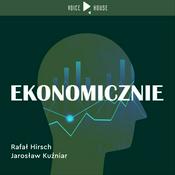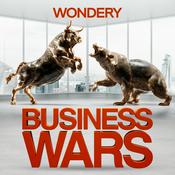13 odcinków
Scarcity, Abundance and Urgency: How Natural Gas Prices Dictate the Pace of Energy Transition
22.12.2025 | 21 min.In this episode of the Energy Flux podcast, host Seb Kennedy explores the evolving landscape of energy markets, focusing on the implications of gas pricing on the energy transition.
He discusses the potential for cheaper gas to impact investments in renewable energy technologies and the mindset shifts among policymakers as energy crises recede.
The monologue also delves into the future of liquefied natural gas (LNG) and the volatility of energy markets, emphasising the need for strategic planning in the face of potential shortages in the coming years.
🎦 Watch video version: Energy Flux YouTube page
Takeaways
The energy crisis is shifting towards a more stable pricing environment.
Cheaper gas may hinder the urgency of the energy transition.
Policymakers may deprioritise energy security as crises fade.
Abundance in energy can lead to complacency in innovation.
The LNG market faces uncertainty with potential project cancellations.
Investment in LNG infrastructure is becoming less attractive.
Gas volatility underscores the need for strategic energy planning.
The LNG industry itself is warning of a supply crunch in the early 2030s.
Future energy policies must consider the potential for sudden market swings.
Chapters
00:00 Talking Gas Outside the Kings Cross Gasometer Buildings
03:06 The Impact of Cheap Gas on Energy Transition
04:37 Policy Challenges and Mindset Shifts
08:17 The Future of LNG Projects and Market Dynamics
14:34 The Paradox of Energy Abundance and Complacency
For more info and to subscribe, head to www.EnergyFlux.newsThe Illusion of Power: Empty Threats & New Dependencies in a Fragmented Energy World
09.11.2025 | 15 min.In this episode, Energy Flux founding editor Seb Kennedy discusses the latest developments in energy diplomacy.
Chief among these is the European Union's recent decision to ban Russian LNG; the implications for EU aspirations of energy independence; and the trade-offs of relying on allies like the US and Qatar, which are using the EU's own sustainability regulations as a tool of diplomatic coercion.
He also covers the US sanctions on Russian oil companies Rosneft and Lukoil, and the complexities of enforcing these measures. Seb connects the dots to uncover a troubling picture of geopolitical dysfunction, where decisive actions are undercut by empty threats and a glaring lack of enforcement.
Are we witnessing a coherent strategy, or just a series of volatile half-measures that create the illusion of power?
Key Topics Discussed:
The EU's Accelerated LNG Ban: Why the 2027 deadline is a bigger deal than it seems, and the logistical headaches it creates for Central Europe.
The Dependency Pivot: How swapping Russian gas for US LNG creates a new set of vulnerabilities.
Empty Threats: Deconstructing why the US and Qatar's warnings over EU sustainability rules are a bluff that collapses under scrutiny.
Sanctions & Enforcement: Analysing the new US sanctions on Lukoil and Rosneft, and why their success hinges on an enforcement track record that's far from perfect.
To find out more about Energy Flux and to sign up for free updates, head to www.EnergyFlux.news.The Illusion of Power: Empty Threats & New Dependencies in a Fragmented Energy World
24.10.2025 | 15 min.In this episode, Energy Flux founding editor Seb Kennedy discusses the latest developments in energy diplomacy.
Chief among these is the European Union's recent decision to ban Russian LNG; the implications for EU aspirations of energy independence; and the trade-offs of relying on allies like the US and Qatar, which are using the EU's own sustainability regulations as a tool of diplomatic coercion.
He also covers the US sanctions on Russian oil companies Rosneft and Lukoil, and the complexities of enforcing these measures.
Seb connects the dots to uncover a troubling picture of geopolitical dysfunction, where decisive actions are undercut by empty threats and a glaring lack of enforcement.
Are we witnessing a coherent strategy, or just a series of volatile half-measures that create the illusion of power?
Key Topics Discussed:
The EU's Accelerated LNG Ban: Why the 2027 deadline is a bigger deal than it seems, and the logistical headaches it creates for Central Europe.
The Dependency Pivot: How swapping Russian gas for US LNG creates a new set of vulnerabilities.
Empty Threats: Deconstructing why the US and Qatar's warnings over EU sustainability rules are a bluff that collapses under scrutiny.
Sanctions & Enforcement: Analysing the new US sanctions on Lukoil and Rosneft, and why their success hinges on an enforcement track record that's far from perfect.
Chapters & timestamps
00:00 EU's decisive action on Russian LNG
04:47 The paradox of 'energy independence'
08:27 US sanctions on Russian oil companies
12:05 The complexity of geopolitical coercion
To find out more about Energy Flux and to sign up for free updates, head to www.EnergyFlux.news.- In today's episode, Energy Flux founding editor Seb Kennedy runs through the paper he presented at the recent Gastech 2025 conference in Milan.
The title of the paper is Mapping the Storage-Speculation Nexus: Hedge fund positioning and the TTF forward curve.
The paper explores a novel methodology for identifying investment fund trading strategies on Dutch TTF, the benchmark European natural gas futures price.
Seb explains the methodology in full, and what it tells us about last year's TTF bull run and subsequent dramatic correction in February and April this year.
He concludes by suggesting policy reforms that could be explored to mitigate some of the speculation-driven price volatility that has characterised TTF in recent times.
The full slide deck can be downloaded at www.EnergyFlux.news, where you can sign up for the Energy Flux newsletter -- where all this research was originally published in 2024 and early 2025. - Energy Flux founding editor Seb Kennedy tours the Gastech exhibition while reflecting on the main themes from the four-day conference.
👉For more analysis, subscribe to the newsletter at www.EnergyFlux.news
Summary
In this episode of the Energy Flux podcast, host Seb Kennedy reflects on the Gastech 2025 event, discussing the rising US presence in the LNG market, the economic realities of pricing, and the political implications of US LNG exports.
He explores the future of US natural gas production and shares insights from his experiences at the event, emphasizing the complexities and challenges facing the energy sector.
Key topics & takeaways
Gastech was a momentous event at a significant historical juncture
The disconnect between public statements from industry leaders and market realities is widening
Over-investment in LNG capacity is reshaping the global glut depth & duration outlook
Transatlantic margins will face significant compression (as detailed in last week’s Hot Take)
North-West Europe-TTF price dislocation as lead indicator for distressed LNG cargo pricing
How merit order economics and cost inflation affect LNG investment attractiveness
The history of LNG, and the difference between conventional integrated export projects vs US LNG second wave
The political & economic implications of gas/electricity price inflation in the domestic US market
Can US shale production growth keep up with competition for upstream gas resources (LNG vs data centres)?
Read more & subscribe at 👉 www.EnergyFlux.news 👈
Więcej Biznes podcastów
Trendy w podcaście Biznes
O The Energy Flux podcast
Critical conversations about the role of natural gas and LNG in rapidly changing energy markets.Energy Flux is the home of fiercely independent energy market analysis, with a focus on European gas and global LNG.Find out more & subscribe at: https://www.EnergyFlux.news/
Strona internetowa podcastuSłuchaj The Energy Flux podcast, Nic Za Darmo i wielu innych podcastów z całego świata dzięki aplikacji radio.pl

Uzyskaj bezpłatną aplikację radio.pl
- Stacje i podcasty do zakładek
- Strumieniuj przez Wi-Fi lub Bluetooth
- Obsługuje Carplay & Android Auto
- Jeszcze więcej funkcjonalności
Uzyskaj bezpłatną aplikację radio.pl
- Stacje i podcasty do zakładek
- Strumieniuj przez Wi-Fi lub Bluetooth
- Obsługuje Carplay & Android Auto
- Jeszcze więcej funkcjonalności


The Energy Flux podcast
Zeskanuj kod,
pobierz aplikację,
zacznij słuchać.
pobierz aplikację,
zacznij słuchać.






































